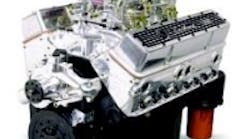| Haase v. Badger Mining Corp., 669 S.W.2d 737 (Wis.App. 2003), Court of Appeals of Wisconsin, May 7, 2003. |
LaverneHaase worked at the Neenah Foundry in Wisconsin from 1955 until his retirement in 1996. Haase wore a government-approved respirator during much of his work that exposed him to silica dust. However, Neenah did not issue him the high-efficiency filters recommended in 1992 by the National Institute for Occupational Safety and Health. Haase developed silicosis, which is caused by inhaling tiny silica particles that result from silica sand.
From 1980 to 1996, Badger Mining Corp. supplied silica sand to Neenah. Badger sent its customers Material Safety Data Sheets for its foundry sand, which warned of the dangers of the product and provided instructions on to how use it safely. Badger also instructed that an "approved dust respirator" should be used if the air contained up to five times more than the permissible exposure for respirable silica. Badger did not amend its MSD sheets to reflect the NIOSH recommendation for high efficiency filters.
Haase sued Badger, arguing that Badger had a duty to provide Neenah with instructions on how to use the sand safely, that it breached that duty, and was therefore liable for his silicosis. Badger asserted that Neenah was a sophisticated user of the sand and was aware of its dangerous characteristics, thus relieving it of any duty to warn Neenah.
At trial, two of Neenah's former safety directors testified that Neenah was well aware of the hazards of the sand. One of them specifically said he did not rely on Badger for information concerning control of silica hazards in the foundry or methods of protecting
Neenah's employees from silica exposure. Haase's experts both testified that silica sand in its natural form was not dangerous because grains of sand are too big to be inhaled and it became dangerous only when broken into small particles during a foundry's manufacturing process.
The Wisconsin trial court ruled for Badger, ruling Neenah was a sophisticated user of Badger's sand and Badger legitimately expected Neenah to institute the necessary safety precautions based on its specific use of Neenah's sand.
Haase appealed to the Court of Appeals of Wisconsin, which upheld the finding for Neenah. The court concluded the State of Wisconsin recognized the sophisticated-user defense. The court also concluded Neenah was a sophisticated user of the sand supplied by Badger. The court noted Neenah had been in business for over 120 years, and kept abreast of industry safety standards and changes in government regulations. It stated, "From our review of the record, it is clear that Neenah had extensive knowledge of the hazards of inhaling silica dust, the disease of silicosis, and the proper dustcontrol methods."
